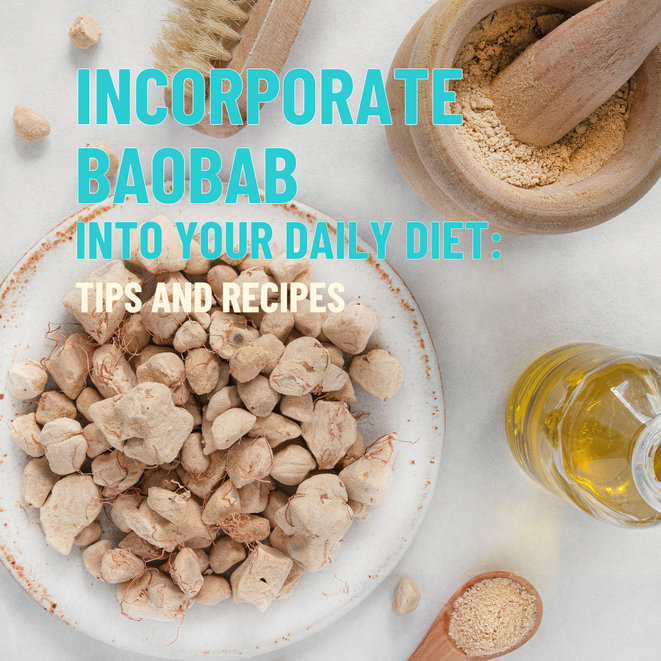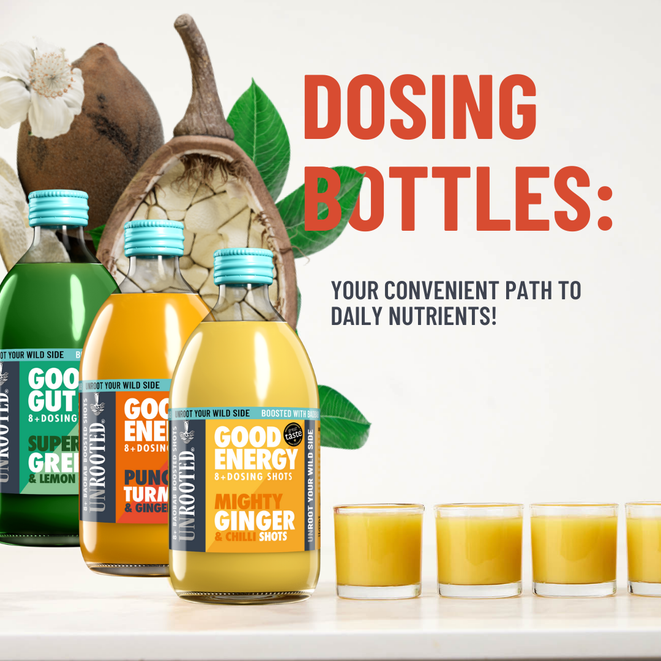The Sustainable Choice: The Benefits of Glass vs. Plastic at the End of Life
At Unrooted, we're on a mission to make the world a healthier and happier place, whether that be through our products and the opportunities we create for others all the way down to the packaging we choose for our products.
The choices we make about the materials we use play a crucial role in shaping a sustainable future. One area where these choices matter significantly is in the selection of packaging materials.
Glass and plastic are two common materials used for containers and packaging, but when it comes to end-of-life considerations, the differences between them become starkly apparent.
In this blog, we will explore the benefits of glass over plastic at the end of their life cycle, shedding light on how choosing glass can contribute to a greener and more eco-friendly world.
- Recyclability:
When it comes to recycling, glass has a clear advantage over plastic. Glass is infinitely recyclable, meaning it can be recycled repeatedly without losing its quality or purity. This process involves melting down used glass to produce new glass products, reducing the demand for raw materials and energy-intensive extraction processes. In contrast, plastic recycling is often more challenging due to the variety of plastic types and their potential to degrade during recycling. Consequently, only a fraction of plastic waste is recycled, leading to massive amounts ending up in landfills or polluting our oceans.
- Environmental Impact:
The environmental impact of glass is generally lower than plastic throughout its lifecycle. Glass production typically requires fewer fossil fuels and emits fewer greenhouse gases compared to plastic manufacturing. Additionally, glass is inert and non-toxic, making it an excellent choice for preserving the quality and taste of things. On the other hand, plastic production relies heavily on petrochemicals, contributing significantly to carbon emissions and environmental pollution.
- Decomposition:
One of the most significant drawbacks of plastic is its longevity in the environment. It can take hundreds of years for some plastic items to decompose fully, leaving a lasting footprint on the planet. Glass, however, is not biodegradable but can break down over time into smaller, harmless pieces called cullet. These cullet pieces pose much less harm to the environment and wildlife compared to plastic debris that persists for centuries.
- Marine Pollution:
The devastating impact of plastic on marine life is well-documented. Plastic waste often finds its way into our oceans, causing harm to marine animals through ingestion and entanglement. Glass, being heavier and denser than water, is less prone to floating on the water's surface and thus less likely to be carried into marine ecosystems. By choosing glass over plastic, we can contribute to reducing the pollution affecting our oceans and marine life.
- Reusability:
Glass containers are widely known for their reusability, making them an eco-friendly alternative to plastic. After a thorough cleaning, glass containers can be reused for various purposes, including storing food, beverages, or even repurposed as decorative items. This characteristic extends their lifespan and minimizes waste generation, which is a vital aspect of sustainable living.
The end-of-life considerations of packaging materials are crucial in our pursuit of a more sustainable and environmentally responsible world. While plastic has dominated the market for decades due to its convenience and low cost, the long-term environmental consequences outweigh its short-term benefits. Glass emerges as a clear winner when it comes to end-of-life considerations, offering superior recyclability, lower environmental impact, and reduced pollution risks.
As consumers, we can play a pivotal role in shaping a better future by opting for glass over plastic whenever possible. By making mindful choices and supporting businesses that prioritize sustainable packaging, we can collectively drive positive change and leave a healthier planet for generations to come. Let us embrace the versatility and eco-friendliness of glass, taking one step closer to a greener, cleaner, and more sustainable world.



